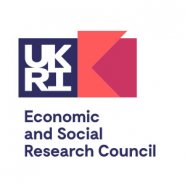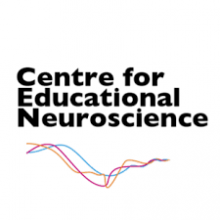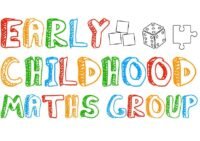
The importance of spatial thinking for mathematics; translating research into practice
Start date
June 2021End date
November 2021Overview
Spatial ability involves perceiving the location and dimensions of objects and the relationships between them. It is core to everyday actions such as reading maps, or packing a suitcase, and it is also associated with expertise in mathematics. Research has shown that spatial training is effective in improving maths performance and is really beneficial to young children as it has been proven to increase expertise in science, technology, engineering and mathematics, in later life.
Despite the importance of spatial ability, it is given little emphasis within the mathematics curriculum in England. In fact, for the Early Years Foundation Stage curriculum, the early learning goal of “Shape, Space and Measure” will be removed from 2021/22 and the latest DfE "Ready to Progress" criteria for mathematics Key Stage 1, does not refer to spatial thinking at all.
This lack of emphasis contrasts to initiatives in the USA, that appreciate that, “without explicit attention to [spatial thinking], we cannot meet our responsibility for equipping the next generation of students for life and work in the twenty-first century.” (National Research Council, 2006).
Enhancing and supporting the use of spatial thinking activities in the classroom is an inexpensive way of supporting children’s mathematical development, and can reduce the annual cost of mathematical difficulties to the UK, which are up to £20billion a year. It can also serve to reduce recruitment difficulties for students entering STEM careers. If the importance of spatial thinking is not successfully communicated to practitioners and policy makers, as a nation we may be failing to implement a very promising avenue for addressing educational inequalities.
Emily Farran, in collaboration with Katie Gilligan-Lee, teamed up with the Early Childhood Maths Group, a UK based group of early years mathematics practitioners and experts, to determine opportunities for adding spatial thinking to the curriculum and how best to translate spatial-maths research to teachers for maximum uptake. The aim was to culminate in creating and piloting a spatial thinking toolkit for teachers, including videos, photographic and written examples of good practice.
They proposed to tap into early years practitioner and primary school teacher experience to:
- Determine where there might be promising opportunities to ‘spatialise’ the curriculum.
- Further understand the detriment of the lack of emphasis on spatial thinking in the mathematics curriculum in England.
- Determine how best to translate research into the relationships between spatial thinking and maths competence to educational practice.
Team

Professor Emily Farran
Professor in Developmental Psychology
Biography
I am a Professor of Cognitive Development, at the University of Surrey, UK, where I direct the Cognition, Genes & Developmental Variability Lab. I completed my PhD at the University of Bristol in 2001. I then took on a lectureship position at the University of Reading. I then moved to the UCL Institute of Education in 2008, before joining the University of Surrey in 2018. The broad aim of my research is to characterise typical and atypical development of cognitive functions within the context of the developing brain. This includes a focus on the relationship between spatial thinking and Science and Mathematics achievement. I was awarded the 2024 Impact and Engagement award from the Developmental Psychology section of the British Psychological Society. My research has been funded by the Economic and Social Research Council, the British Academy, the Leverhulme Trust, the Nuffield Foundation, Wellcome, the Education Endowment Foundation, the Waterloo Foundation, Autour des Williams, the Williams Syndrome Foundation, and Fondation Jerome Lejeune.

Dr Katie Gilligan-Lee
Lecturer in Developmental Psychology
Biography
Katie completed an undergraduate degree in Neuroscience at Trinity College Dublin (2012) followed by a MPhil in Psychology and Education at the University of Cambridge (2013). She obtained her PhD in Developmental Psychology from University College London (UCL) before joining the University of Surrey as a Lecturer in October 2018.


Independent consultant
Dr Andrea Lancaster
Early Years mathematics specialist consultant

Independent consultant
Dr Helen J Williams
Early Years mathematics specialist consultant

Professor Sue Gifford
Professor, University of Roehampton

Catherine Gripton
Assistant Professor in Primary Education, University of Nottingham

Kathryn Bates
Researcher
Our Partners
Outputs
Publications
Gripton, C., Bates, K.E., Gifford, S., Gilligan-Lee, K.A., Williams, H.J., Borthwick, A., Williams, A.Y, Lancaster, A., Farran, E.K. (2025) Navigating ‘the bumpy road’ from research to practice: Improving the impact of research on spatial reasoning practice with young children. Early Years. h
Bradbury, A., Farran, E.K., Gilligan-Lee, K., Outhwaite, L. A., van Herwegen, J., & Wyse, D. (2024). Dividing times: the views of early adopters of a new assessment framework on mathematics in England. Early Years, 1-15.
Farran, E.K., McCarthy, S., Gilligan-Lee, K.A., Bates, K., Gripton, C. (2024). Translating Research to Practice: Practitioner Use of the Spatial Reasoning Toolkit. Gifted Child Today, 47.
Gilligan-Lee, K., Bradbury, A., Bradley, C., Farran, E. K., Van Herwegen, J., Wyse, D., & Outhwaite, L. A. (2023). Spatial Thinking in Practice: A snapshot of teacher’s spatial activity use in the early years’ classroom. Mind, Brain and Education.
Bates, K.E., Williams, A.Y., Gilligan-Lee, K.E., Gripton, C., Lancaster, A., Williams, H., Borthwick, A., Gifford, S., Farran, E.K. (2023). Practitioner’s perspectives on spatial reasoning in educational practice from birth to 7 years. British Journal of Educational Psychology.
Impact
This project built upon Emily and Katie’s previous research. They had already demonstrated relationships between spatial ability and mathematics in primary school age children and that spatial training improves performance not only in spatial ability, but in mathematical achievement.
The Early Childhood Maths Group (ECMG) Spatial Reasoning toolkit was launched via two online webinars on 28th February 2022, attended by over 300 practitioners. The afternoon event was targeted at practitioners who work with children from 4 to 7 years and the evening event was targeted at practitioners who work with children from birth to 4 years. In the launch events, we introduced spatial reasoning, detailed our interactions with practitioners during the creation of the toolkit, heard from teachers’ experience of using the toolkit, and outlined the toolkit itself and how to use it. During the events, we asked attendees questions to find out more about their roles, their understanding of spatial reasoning and to provide feedback on the toolkit.
The toolkit also featured at the British Academy showcase 2022, exhibit “Find Your Space: the importance of engaging your spatial brain” London, 17-18 June: https://www.thebritishacademy.ac.uk/events/british-academy-summer-showcase-2022/
The toolkit enables teachers to increase their use of spatial thinking in early years settings and primary classrooms. Teachers will integrate spatial thinking into core curriculum concepts by following easy to use examples, all of which children will enjoy and benefit from. They will also be equipped to use a range of resources, both formal structured apparatus and informal resources made by children and teachers, in an informed manner, to embed spatial teaching strategies into the curriculum.
The pilot toolkit evaluation and impact scoping exercise have placed Emily and her team in an optimal position to apply for further funding to improve and roll out the toolkit more broadly, and for future policy impact.
This project is also relevant to the ESRC priorities of mental health because the success of the project has the potential to reduce maths anxiety and improve attitudes to maths in practitioners/teachers, parents and children.
This work has been disseminated through a number of networks, (via newsletters, mailings, via website and twitter as follows
- NCETM
- NAMA
- AMET
- Early Education newsletter
- NASEN SEND leads
- NRICH
- NDNA
- DfE
- Ofsted
- ACME
- PACEY
- Ark
- OUP
- TACTYC
- ECMG
- ATM/MA Joint Primary group
A number of presentations have resulted from this work:
- Gripton, C. (2021). Developing spatial reasoning in EYFS/KS1 mathematics. Presentation given at the Summer Celebration of Education, University of Nottingham, July 2021.
- Gripton, C. & Gifford, S. (2022). The spatial reasoning toolkit. Presentation to the ATM & MA joint Early Years and Primary Group at the Royal Society, London, June 2022.
- Gifford, S. & Farran, E.K. (2022). Spatial Reasoning and Early Years Mathematics. Early Years and Primary Phase Committee of the Geographical Association, UK. March 2022
- Farran, E.K. (2022). The relationship between spatial reasoning and mathematics in childhood. Prospect House School, UK. March, 2022.
- Gripton, C. & Farran, E.K. (2022). Supporting spatial play in maths. Birth to 5 matters Spring Festival, March 2022.
- Farran, E.K. (2022). Invited panellist (with Jonathan Wai, Joni Lakin). Why Spatial Learning is School’s Missing Metric. World Education Summit 2022, March 2022.
- Gripton, C., Borthwick, A., Gifford, S., Williams, H.J., Farran, E.K., Gilligan-Lee, K.A., Williams, A.Y., Lancaster, A. & Bates, K.E. (2022) Practitioner perspectives on spatial reasoning. Paper presentation given at British Society for Research in Learning Mathematics (BSRLM) conference, March 2022.
- Gifford, S. & Lancaster, A. Enabling environments that support children’s STEM development, National Day Nurseries, Friday 24th June 2022. Association conference https://ndna.org.uk/conference/practice-stream/, June, 2022.
- Williams, H.J. session for Mobius Maths Hub, Thursday 23rd June 22. The ECMG / University of Surrey’s Spatial Reasoning Toolkit: Some practical implications from international research into the importance of spatial reasoning in children’s mathematical development.
- Williams, H.J. and Gifford, S. Session for CODE Maths Hub, Monday and Tuesday 11th & 12th July 2022. Developing children’s reasoning through spatial reasoning and pattern.
- Williams, H.J. Day visit to a Plymouth primary school exploring practical implications of the spatial reasoning toolkit in the Foundation Stage and KS1f, 24th May 2022.
- Borthwick, A. webinar for Maths is More, 9th February 2022 https://youtube.com/playlist?list=PLx4fiLCwHUZqUDYqjyS62DgNlstQPx-GU
- Borthwick, A. PD day at Trumpington Federation, Cambridge, 6th June 2022
- Borthwick, A. PD half day at Drake Primary School, Thetford, Norfolk, 13th June 2022
- Borthwick, A. Norfolk/Suffolk mathematics subject leader consortium (14th March 2022)
- Borthwick, A. Norfolk/Suffolk mathematics early years consortium (13th May 2022)
- Borthwick, A. NCETM EYFS SKTM (Angles Maths Hub) (1st March 2022 and 2nd March 2022)
- Gifford, S. Sessions for Maths Hubs: NE Hants &Surrey; NE London & Camden LA; Yorks ridings (throughout June and July 2022).
- Williams, H. Session for South West Professional Development Providers, summer 2022.
- Lancaster, A. Working with a MAT (Harmony Trust) in Oldham and Derby.
Blogs and articles
- Gripton, C. (2021). Spatial thinking: the missing piece in mathematics education? University of Nottingham’s Primary Education Network.
- Gripton, C. & Farran, E.K. (2022, in press). Supporting spatial play in mathematics. Early Education Journal, 97, Summer 2022, 21st century skills themed issue.
- Farran, E.K. & Gripton, C. (2022). Improving mathematics through spatial thinking. Education Endowment Foundation Research Schools Network. https://researchschool.org.uk/news/improving-mathematics-through-spatial-thinking
- GLAssessment blog: https://reports.gl-assessment.co.uk/the-transition-conversation/spatial-thinking-for-stem/
- Gripton, C. & Farran, E.K. (2022). How can we support young children’s spatial reasoning. Blog on Learning and Development. https://bold.expert/how-can-we-support-young-childrens-spatial-reasoning/
- Special issue: Spatial Reasoning, Primary Mathematics. Journal of the Mathematical Association 26(1). https://earlymaths.org/mathematical-association-articles-originally-featured-in-the-spring-2022-edition-of-primary-mathematics/
- Farran, E.K. (2021). What role does spatial thinking play in STEM? Improving STEM skills by promoting the development of children’s spatial ability. Blog on Learning and Development. https://bold.expert/what-role-does-spatial-thinking-play-in-stem/
- Surrey webpage: https://www.surrey.ac.uk/news/advancing-childrens-stem-abilities-through-spatial-awareness
- CEN webpage: http://www.educationalneuroscience.org.uk/category/research/
Research papers
- Bates, K. E., Williams, A. Y., Miss, Gilligan-Lee, K. A., Gripton, C., Lancaster, A., Williams, H., Dr, … Farran, E. K. (submitted). Practitioner’s perspectives on spatial reasoning in educational practice from birth to 7 years. https://doi.org/10.31234/osf.io/m8nfv
- Gripton, C., Gifford, S., Gilligan-Lee, K.A., Williams, H., Borthwick, A., Bates, K.E., Williams, A.Y., Lancaster, A. & Farran, E.K. (in progress). Navigating ‘the bumpy road’ from research to practice in early childhood mathematics: improving the impact of research on spatial reasoning practice with young children.
Impact Acceleration Account awarded projects
Our projects are all playing their part in turning social science research outcomes into meaningful impact that will touch our lives and communities.

